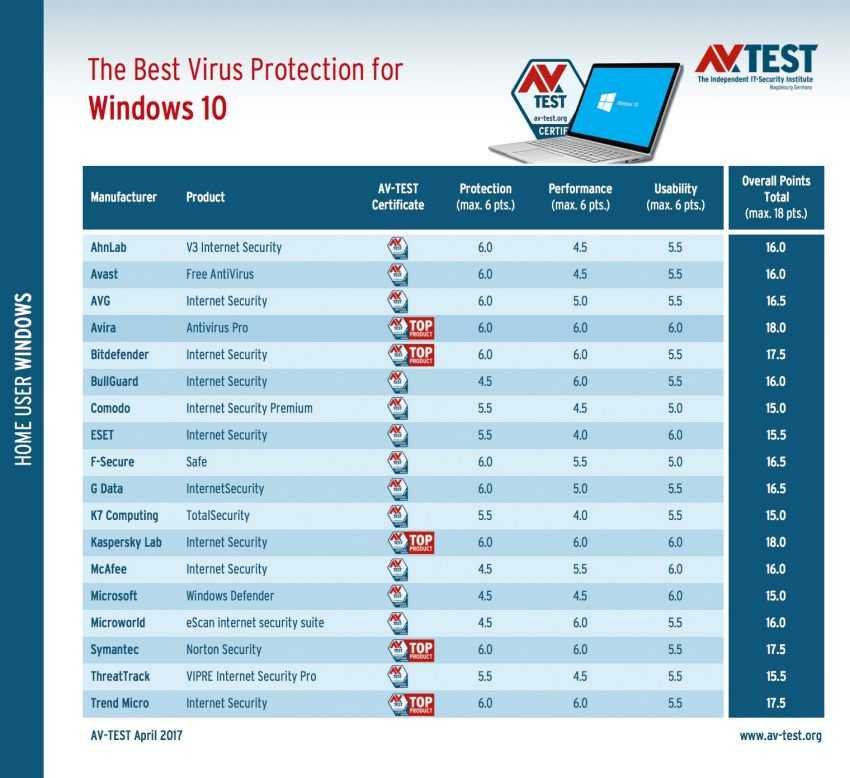To determine which antivirus product provides the best security on the market, security testing institute AV-TEST conducted a survey in March and April to test the most popular applications released for Windows 10 and the results were a bit strange.
Kaspersky's anti-virus programs, Bitdefender and Symantec, which had been at the top of the list for a while, probably started to lose ground.
This time, only two softwares managed to score the highest score and receive 6 at 6 points in protection, performance and usability tests for 18 unit final scores: Kaspersky and Avira. According to the institute AV-TEST Microsoft, Symantec and Bitdefender applications come in second on the charts and are very close to the top with 17,5 points due to the 5,5 points in usability tests. They all got 6 points for protection and performance.
According to the institute AV-TEST Microsoft, Symantec and Bitdefender applications come in second on the charts and are very close to the top with 17,5 points due to the 5,5 points in usability tests. They all got 6 points for protection and performance.
Particularly disappointed was ESET, whose security products received only 5,5 points for protection, 4 points for performance and 6 points for usability. This means that its software companyς όχι μόνο δεν κατόρθωσε να ανιχνεύσει όλα τα δείγματα κακόβουλου software, but it also slowed down the Windows 10 system much more than the apps mentioned above.
Avast's security product has received 6 degrees to protect, but only 4,5 in performance and 5,5 grades for usability.
As far as Microsoft's Windows Defender is concerned, it appears to be one of the worst security solutions after collecting 15 units as a final score. He noted 4,5 units in protection and performance tests, and 6 grades in usability.
The latest security solution on our list by AV-TEST is the Comodo software, which received 5,5, 4,5 and 5 units, respectively.





